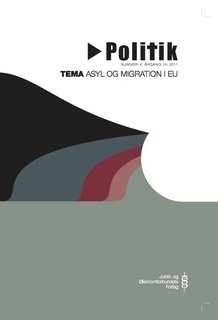Dobbeltspillet
DOI:
https://doi.org/10.7146/politik.v14i4.27496Resumé
The European Union (EU) has from its very beginning had the objective to grant its workers a right to free movement across the European borders. A secondary effect has since then been the right to bring the family along. As the Union has evolved, the European Court of Justice (ECJ) has functioned as the primary generator of rights when it comes to securing the union citizens’ right to family reunification.
On the other hand, the Danish legislators have been tightening the domestic rules regarding family reunification for numerous years. In other words, there has been a clear discrepancy between EU law and domestic law on the family reunification area for a long time.
The article analyzes this discrepancy while trying to gain an insight into the EU’s effect on Danish family reunification policies.
Downloads
Publiceret
Citation/Eksport
Nummer
Sektion
Licens
Forfattere, der publicerer deres værker via dette tidsskrift, accepterer følgende vilkår:
- Forfattere bevarer deres ophavsret og giver tidsskriftet ret til første publicering, samtidigt med at værket er omfattet af en Creative Commons Attribution-licens, der giver andre ret til at dele værket med en anerkendelse af værkets forfatter og første publicering i nærværende tidsskrift.
- Forfattere kan indgå flere separate kontraktlige aftaler om ikke-eksklusiv distribution af tidsskriftets publicerede version af værket (f.eks. sende det til et institutionslager eller udgive det i en bog), med en anerkendelse af værkets første publicering i nærværende tidsskrift.
- Forfattere har ret til og opfordres til at publicere deres værker online (f.eks. i institutionslagre eller på deres websted) forud for og under manuskriptprocessen, da dette kan føre til produktive udvekslinger, samt tidligere og større citater fra publicerede værker (se The Effect of Open Access).

